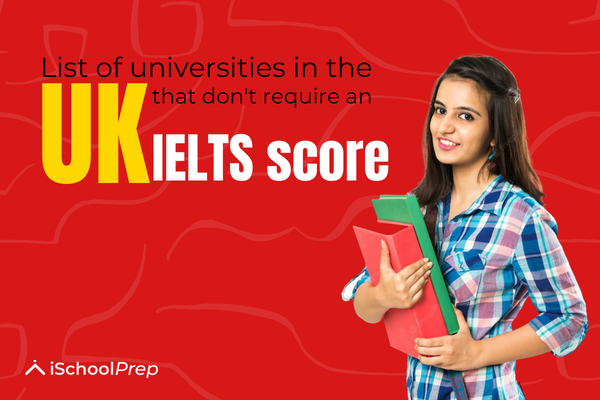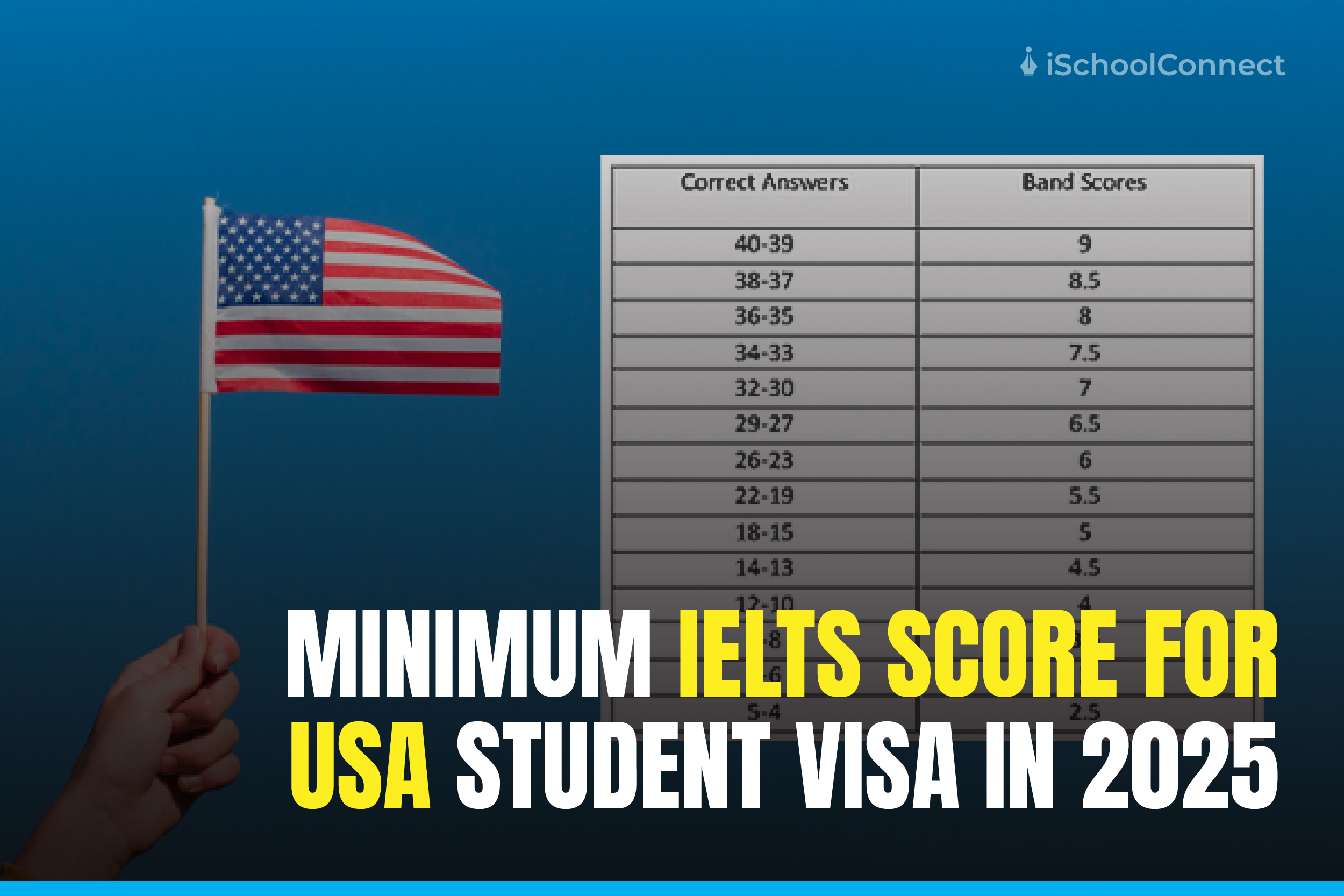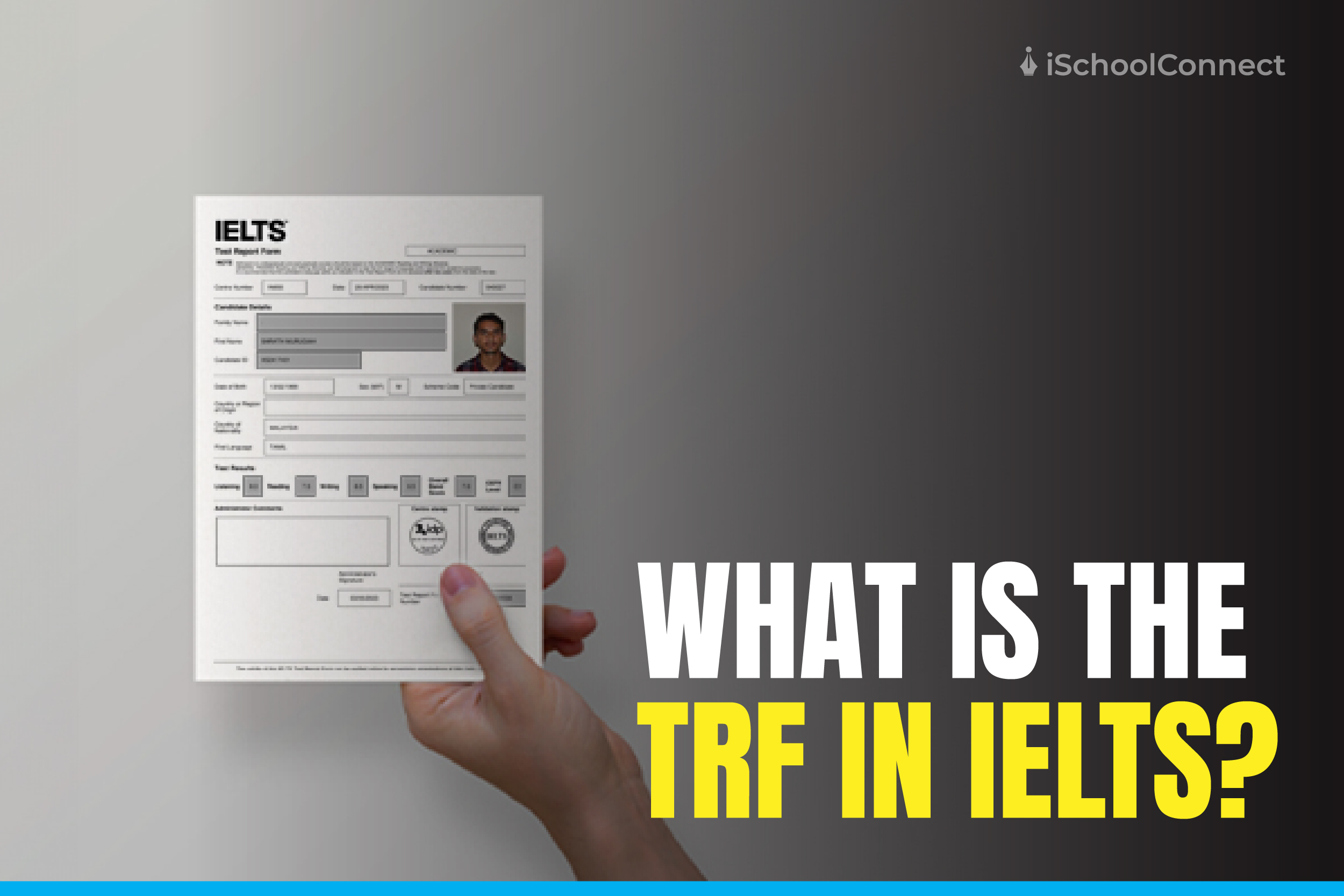Table of Contents
Studying in UK universities without IELTS
For studying abroad, along with the standard tests like GRE, GMAT, etc., answering language proficiency tests, like the IELTS, are equally important. Especially in countries like the United Kingdom, it is essential as the courses offered are in English. IELTS, though relatively moderate, can be tricky to answer for non-native speakers. Many times, students don’t get the cut-off band required for getting into international universities. But does that mean your study abroad dreams will come to a halt? Definitely not! Interestingly, there are many top UK universities without IELTS score requirements that you can choose from. Read this blog to learn more about the universities, how to apply, etc.
Criteria for applying to UK universities without IELTS
For applying to UK universities with the IELTS score, the following are the criteria that you must meet –
1) Previous education in English
If you have finished your secondary education at an English-medium school, enrolling in a UK university without the IELTS is possible. You must obtain an MOI (Medium of Instruction) certificate from your educational institution to demonstrate your proficiency in the English language.
2) English language scores
Your high school English language scores are required by UK colleges that do not require the International English Language Testing System (IELTS) score. Universities will typically accept your 10th and 12th grade English grades (or higher) as a verification of your level of English ability.
3) Online interview
Another criterion that UK universities without an IELTS score requirement follow is an online interview. You have to participate in Skype interviews and converse in English with the university representatives. The online interview aims to determine how well you communicate in English.
List of UK Universities that don’t require IELTS
Now that you know how to apply to top UK universities without IELTS, here are a few institutions that you choose from –
| The University of Plymouth | The University of Portsmouth |
| Swansea University | The University of Northampton |
| The University of Warwick | London Southbank University |
| The University of Essex | Aston University |
| The University of Central Lancashire | Northumbria University |
| The University of Greenwich | Robert Gordon University |
| University of Bolton | The University of Basel |
| Birmingham City University | Sheffield Hallam University |
| Bangor University | Brunel University |
Top UK universities without IELTS | Important documents
- SSC mark sheet
- HSC mark sheet
- Bachelor’s semester marks sheet
- Provisional certificate & consolidated marks memo
- Medium of Instruction certificate
- Passport
- Letter of Recommendations
- Resume
- Statement of Purpose
- Offer letter

UK universities without IELTS | Steps to follow
Step 1: Make a list of universities and courses
The first step is to list courses and schools that fit your academic background and interests. You can narrow down your options from the top UK universities without IELTS and compile a list of schools from them with the best chance of acceptance.
Step 2: Check the deadlines
The next step is to research the application dates for each UK institution of higher education to which you intend to apply. The application process for international students starts early (one year to 6 months before the deadline). Make sure to submit the complete application, including a personal statement, recommendation letters, proof of English language (high school marks, medium of instruction certificate, etc.), evidence of financial need, and scholarship applications to the universities before the deadline.
Step 3: Take an English proficiency test
While an IELTS score is not necessary for a few colleges, you can still take a few English language proficiency tests, like Duolingo. It supports your English language proficiency, school scores, and so on.
Step 4: Begin the application process
Once you have gathered the necessary materials, you can begin the application process independently or through any other platform. For those institutions in the UK that are accepting direct applications, the first step is to visit the school’s website. All you need to do is go online, pick your classes, and submit your application.
Key takeaways
- You should be aware of the requirement for exceptional English language skills if you intend to enroll in a university in the United Kingdom.
- Under certain conditions, some British colleges may use a different method than the usual English proficiency examinations to evaluate your skills in this area.
- It is possible to gain admission to top UK universities without IELTS, but only with high grades and good English proficiency levels.
- Your English scores from high school and college must be good.
- In addition, you must submit a certificate of Medium of Instruction (MoI), which will verify your English speaking proficiency.
- While there are top UK universities without IELTS score requirements, you can always answer English proficiency tests like Duolingo to show your skills.
If you are preparing to study abroad in the United Kingdom and need assistance, contact us today. Our experts will help you train for the exams and ensure you score well.
Liked this blog? Then read 20 unusual English words to add to your vocabulary!
FAQs
Question 1: Is it possible to answer English proficiency test other than IELTS for admissions to UK universities?
Answer: You can answer an English proficiency test other than IELTS, but it should be in accordance with the university you are applying to. While getting into the top UK universities without IELTS is possible, you must have excellent grades in your school and college. You must also submit a Medium of Instruction certificate that verifies you have studied in an English medium school.
Question 2: Can I work in the UK without IELTS?
Answer: If you have a bachelor’s or master’s grade point average of at least 70, you can apply for a UK work visa without taking the IELTS.
Question 3: Does the UK acknowledge the study gap?
Answer: The education gap is legal in the United Kingdom.






